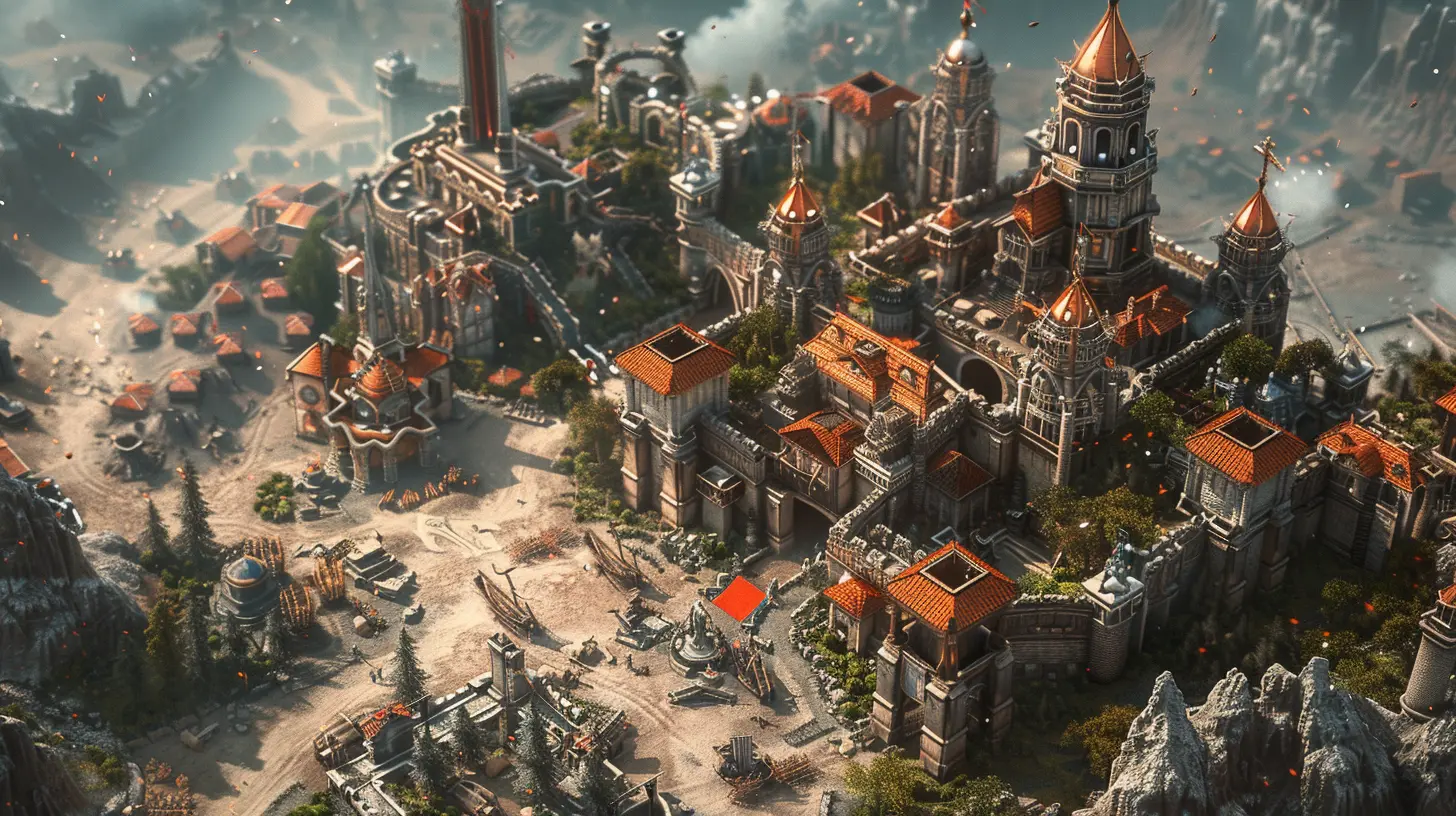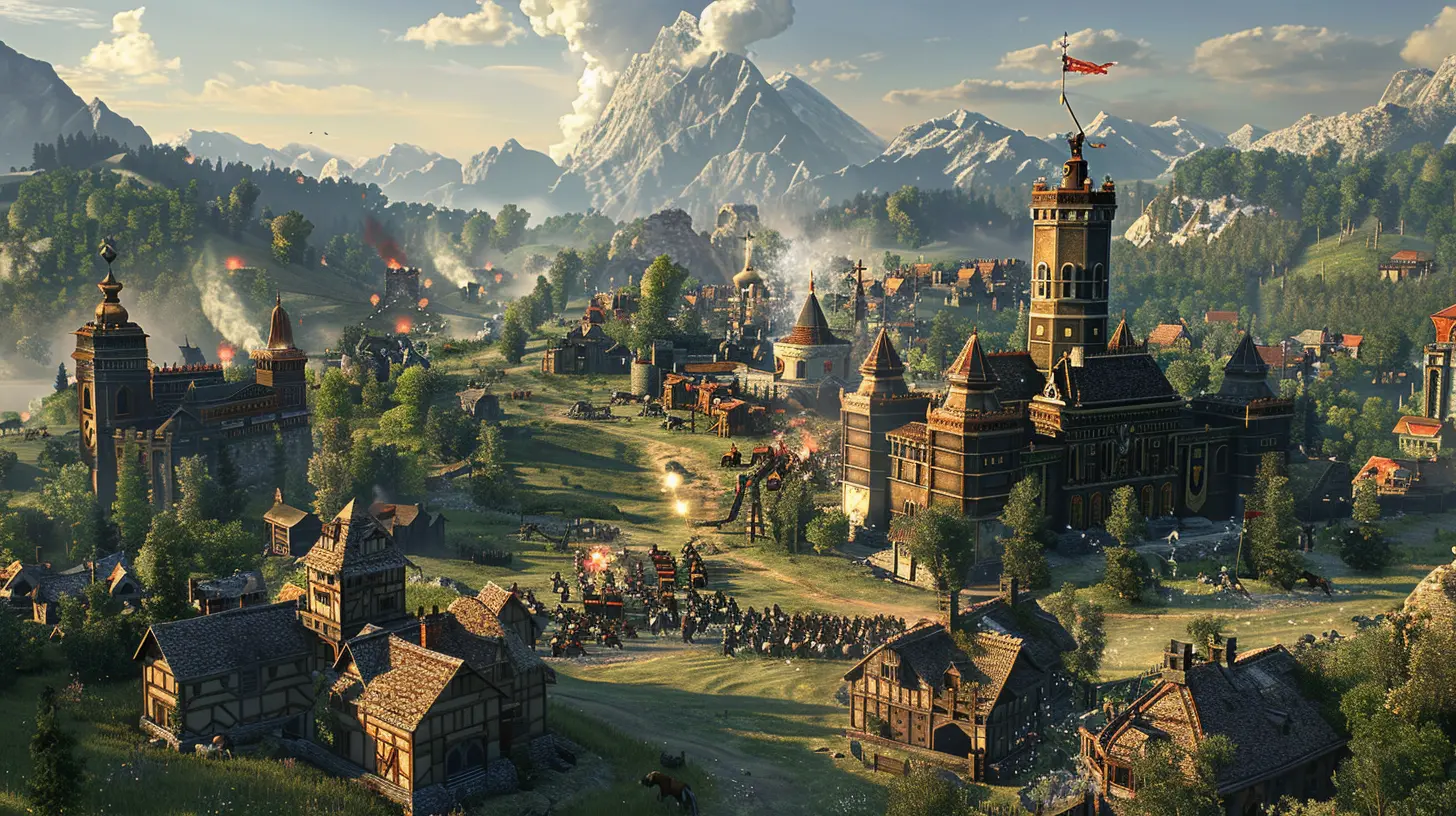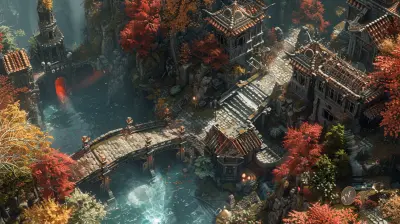16 March 2025
When it comes to strategy games, mastering resource management is the golden rule that separates amateurs from pros. Let’s face it—whether you’re building an army to conquer your foes or developing a thriving empire, every decision in these games boils down to how effectively you can gather, spend, and prioritize resources. Run out of gold, food, or energy, and you’re toast. Have more than you can manage? You’re probably being inefficient. So, how do you strike the perfect balance? Dive in as we break down practical resource management tips that can lead you to victory in strategy games.

Why Is Resource Management So Important?
Think of resources as the fuel that powers your gameplay. No resources? No progress. It’s as simple as that. Whether you're playing real-time strategy (RTS) games like StarCraft or turn-based behemoths like Civilization, managing resources efficiently can often be the difference between crushing your opponents or spiraling into defeat.Strategy games often simulate real-world challenges, so your approach must be part accountant, part tactician. Got limited food? You can’t support a bigger army. Short on wood or stone? Tough luck building that fortress. Missed the timing on an upgrade? Your rivals are already ahead. Smart resource management ensures you stay competitive without burning out your economy.
Top Tips for Resource Management in Strategy Games

1. Prioritize Early Expansion
Ever heard the phrase, "You’ve got to spend money to make money?" Well, the same goes for strategy games. Early in the game, prioritize expanding your base, acquiring new resource nodes, or establishing trade routes. Expand too slowly, and you’ll fall behind in the resource race. Here's the kicker: expand too fast, and you might stretch yourself thin.A good rule of thumb? Secure nearby resources first before chasing after ones far from your base. This minimizes the risk of overextending yourself while keeping your supply chain efficient. Think of it like planting seeds in your backyard before venturing out into the wild.
2. Balance Your Resource Types
Specialized in hoarding one type of resource? That’s a rookie mistake. Think of your resources as ingredients in a recipe—they all work together. Accumulating mountains of gold won’t help you if you’re out of food to feed your army or wood to build defensive structures.To avoid bottlenecks, always keep an eye on your resource balance. Most strategy games provide handy tools like overlays or economy graphs. Use these like your financial dashboard—adjust your focus depending on which resource is low. Much like juggling, the key is not dropping any ball, even for a second.
3. Scout and Plan Ahead
Knowledge is power. If you don’t know what your enemies are up to, you’re playing blind. Scouting isn't just for locating enemy bases; it’s also vital for discovering resource-rich areas. Got no immediate access to iron? Then you know it’s time to prioritize trade or expansion to a new territory.But here’s the deal: scouting isn’t a one-time thing. Make it a habit to constantly send scouts or drones (depending on your game) to gather intel. It’s like checking the weather before planning a hike—you want to avoid nasty surprises.
4. Optimize Workforce Allocation
You wouldn’t hire 50 people to do a job that only needs 10, right? The same logic applies to strategy games. Assigning the right number of workers to collect resources is critical. Too few workers, and your production will stagnate. Too many, and you’re wasting manpower that could be better used elsewhere.For instance, in Age of Empires, keeping a balanced workforce across woodcutting, farming, and mining ensures a steady flow of resources. Continually assess your workforce distribution based on your current priorities—sometimes you might need fewer miners and more farmers, or vice versa.
5. Invest in Upgrades Wisely
Resource management isn’t just about gathering and spending—it’s also about investing. Many strategy games offer upgrades or technologies that can improve your resource production efficiency. For example, you might be able to upgrade farms to produce more food or unlock tech that boosts mining speed.Here’s the thing: not all upgrades are created equal. Don’t blindly throw resources at every shiny new tech that becomes available. Instead, ask yourself, “Will this benefit me in the current stage of the game?” Investing in long-term upgrades early can cripple your economy in the short term. It’s all about timing—like planting a tree, you want to water it regularly without overdoing it.
6. Don’t Hoard—Spend Strategically
Hoarding resources might feel safe, but it’s often a huge mistake. Unspent resources are wasted potential. If you’re sitting on a surplus of gold or food, that means you could be training more troops, building more structures, or exploring new territories.That said, don’t blow through resources without a plan. Spending should always align with your strategy. Need to fend off an immediate attack? Focus on defense spending. Building toward a late-game win condition? Invest in economic infrastructure now to reap the rewards later. It’s all about knowing when to tighten the purse strings and when to go all-in.
7. Adapt to Map Constraints
Not every game map is the same. Some maps are resource-heavy, while others are barren wastelands. Adapting your strategy to the map is critical. If resources are abundant, focus on rapid expansion and overwhelming your opponent quickly. If resources are scarce, adopt a more conservative approach—use resources sparingly and rely on guerrilla tactics or diplomacy.Think of it like living in different climates—you wouldn’t wear the same outfit in the Arctic as you would in the desert. Tailoring your resource strategy to the environment is half the battle won.
8. Monitor Your Opponent’s Economy
Resource management isn’t just about you—it’s also about them. If your opponent is stockpiling resources, they could be gearing up for a massive assault or saving for a game-changing upgrade. Stay vigilant and adjust your strategy accordingly.Want to take it a step further? Sabotage their economy. Raids, blockades, and targeted strikes can cripple your opponent’s resource flow, giving you the upper hand. Think of this as cutting off their oxygen supply while keeping your breath steady.
9. Learn From Each Game
Not every game will go your way, and that’s okay. Each loss is a lesson in disguise. Were you too aggressive with expansion? Did you forget to build enough farms? Were you caught off-guard by an enemy’s attack? Analyze your gameplay and pinpoint where your resource management fell apart.It’s like playing chess—you won’t master it overnight, but every move teaches you something. Over time, you’ll develop an intuition for managing resources efficiently, no matter the game.
Final Thoughts
Resource management in strategy games might feel overwhelming at first, but it’s all about mindset. Treat it like juggling—you might drop the ball a few times, but with practice, you’ll find your rhythm. Prioritize wisely, adapt to the game situation, and remember: every resource you gather (or deny your opponent) brings you one step closer to victory.So, the next time you load up your favorite strategy game, keep these tips in mind. Who knows? You might just transform into a resource management ninja capable of outsmarting the toughest foes.







Adrian McKale
Great tips! Effective resource management is crucial for success in strategy games. Prioritizing and planning ahead can make all the difference in achieving victory!
March 29, 2025 at 5:21 PM